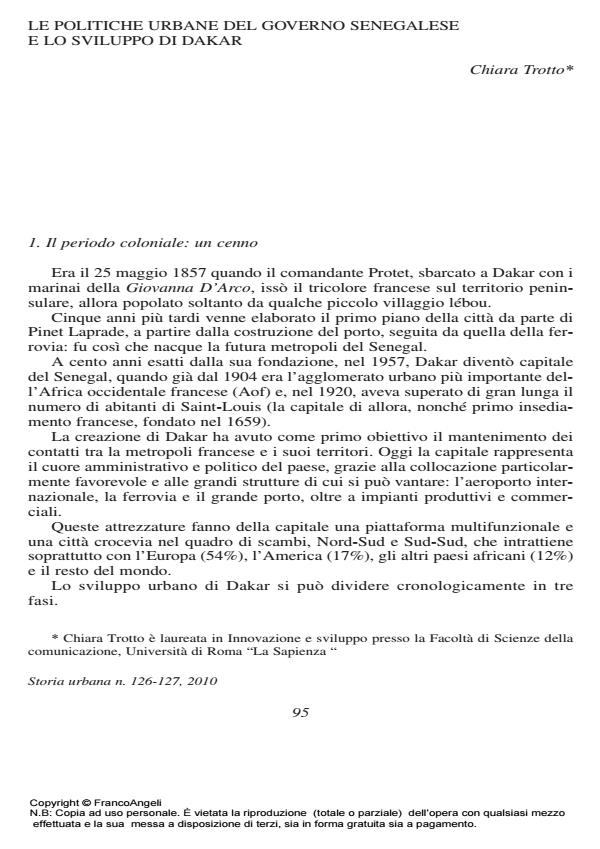The urban politics of the Senegal governement and the development of Dakar
Journal title STORIA URBANA
Author/s Chiara Trotto
Publishing Year 2010 Issue 2010/126/127 Language Italian
Pages 21 P. 95-115 File size 2157 KB
DOI 10.3280/SU2010-126005
DOI is like a bar code for intellectual property: to have more infomation
click here
Below, you can see the article first page
If you want to buy this article in PDF format, you can do it, following the instructions to buy download credits

FrancoAngeli is member of Publishers International Linking Association, Inc (PILA), a not-for-profit association which run the CrossRef service enabling links to and from online scholarly content.
Dakar represents a symbolic place of the political and administrative French centralization. Its urban development showed an exponential growth that caused the overcrowding of several urban and periurban areas especially during the last twenty years. The political authorities tried to check problems like the inhomogeneous and deregulated growth: first carrying out statist policies for a forced regularisation and then through participated building projects concerning the urban habitat. The singularity of the city’s urban management lays in the Senegal urbanistic code that leaves to the President the final decision about the urban topics. That proves the importance and the political weight of the urban themes in this country and the hard decentralisation process still to be metabolized. During the last years, Abdoulaye Wade tried to give a new surge to the capital city unveiling new infrastructure projects and starting the building process of huge monuments, which gave importance to the city; its target is to give back to the city its ancient role as West African main city, and possibly of the whole Africa, and making it becoming the new West Africa most attractive commercial and business pole.
Keywords: Senegal, Dakar, Urbanization, Urban politics, Abdoulaye Wade
Chiara Trotto, Le politiche urbane del governo senegalese e lo sviluppo città di Dakar in "STORIA URBANA " 126/127/2010, pp 95-115, DOI: 10.3280/SU2010-126005